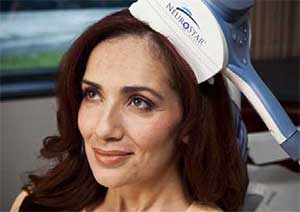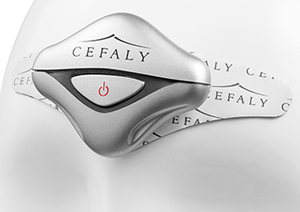Headaches & Migraines
Are you experiencing too many headaches?
Millions of Americans suffer from migraine headaches. If you or someone you know has been suffering from migraines, the Headache & Pain Center of Palm Beach and Dr. Robert J. Friedman can help provide the latest insights on new headache and migraine treatments.
We Specialize in Migraine and Headache Management
Below are some of the treatments that the Headache & Pain Center of Palm Beach, located in Palm Beach Gardens, Florida, can offer to people suffering from headaches and migraines. Dr. Friedman will work with you to devise a plan that is right for you and your pain needs.

Medical Acupuncture
Acupuncture is a method of encouraging the body to promote natural healing and to improve functioning. In the right hands, acupuncture is a low-risk treatment.
Dr. Friedman combines treatment of traditional Chinese acupuncture points with his medical experience and knowledge of nerves and muscles to help with headaches.

Transcranial Magnetic Stimulation (TMS) for Headaches
Recent studies show that transcranial magnetic stimulation (TMS) can be useful for some types of migraine, and a trigeminal nerve stimulation device was approved by the FDA for migraine treatment.

Cefaly
Cefaly is the first device of its kind created to prevent migraine headaches. The FDA-cleared, non-drug migraine treatment prevents migraines by applying a gentle, electric current to the head that stimulates specific nerves. Dr. Robert J. Friedman is one of the first headache specialists to offer Cefaly treatments for individuals suffering from migraines.
tDCS for Headaches
Transcranial Direct Current Stimulation (tDCS) is a type of neuromodulation therapy designed to alter the way the nervous system (nerves, spinal cord, and/or brain) transmits messages that occur when pain nerve cells are stimulated or damaged. tDCS is a unique, safe option for trying to alleviate chronic pain. tDCS trials that have shown success include migraine headaches.

Medical Foods
We offer several types of medical foods focused on pain conditions and related disorders. These formulations are designed to boost certain neurotransmitters, reduce inflammation, or relieve associated problems
A few types of nutritional and herbal supplements have enough evidence to support their use for conditions such as headaches (eg: Feverfew and MigreLief).

Nerve Blocks & Botox
Nerve blocks can be used for headaches such as occipital neuralgia and cluster headaches. They are injections of numbing medicine (local anesthetic) and anti-inflammatory steroids that can be useful for certain types of headaches and other pain conditions.
Botox was recently approved by the FDA for the treatment of chronic migraines (15 or greater headache days per month).

Medication Management
Some newer, very effective medications are available to treat migraines. They specifically act on the migraine mechanism and usually don't have the drawbacks associated with painkillers. However, in some patients with very frequent headaches, medication may actually be part of the problem.
Depending on your type of pain, the cause of your pain, your individual needs and other factors, your physician can determine if managing your pain with medications is the right choice for you.




